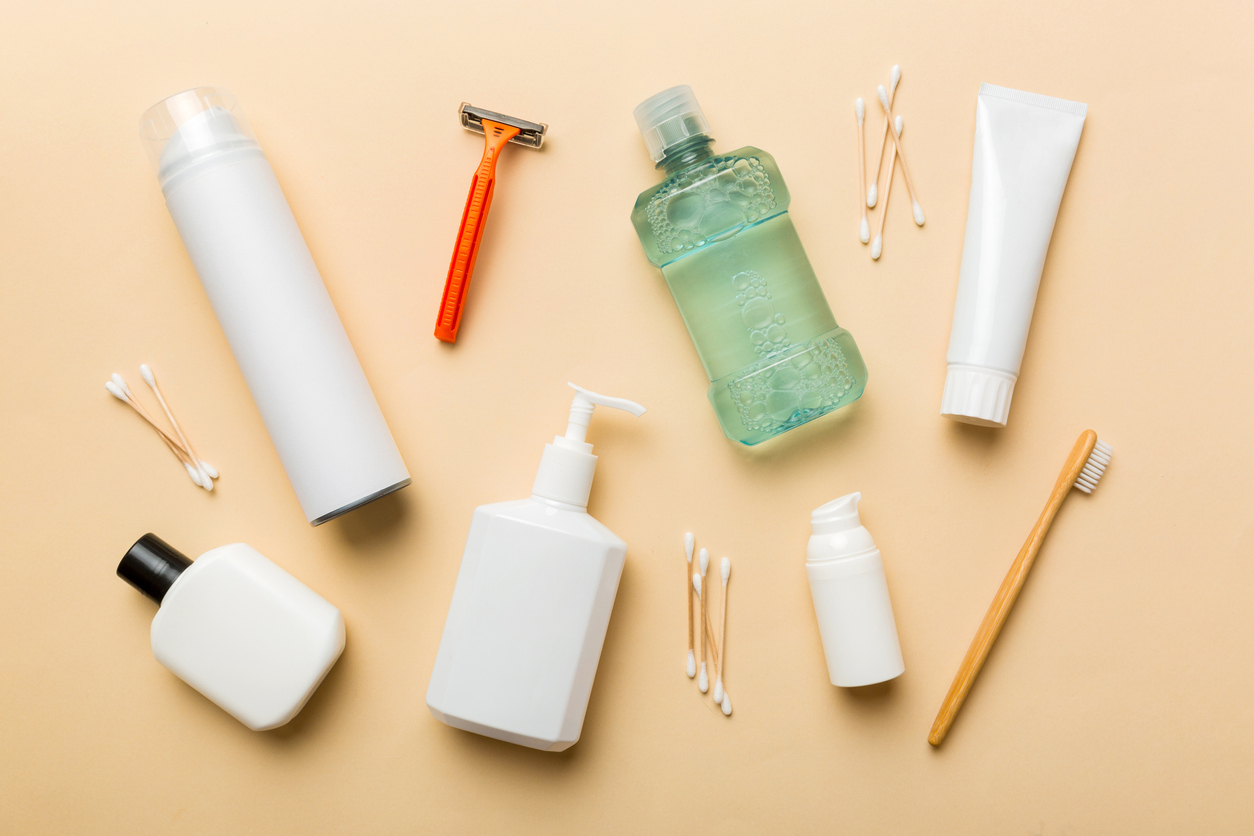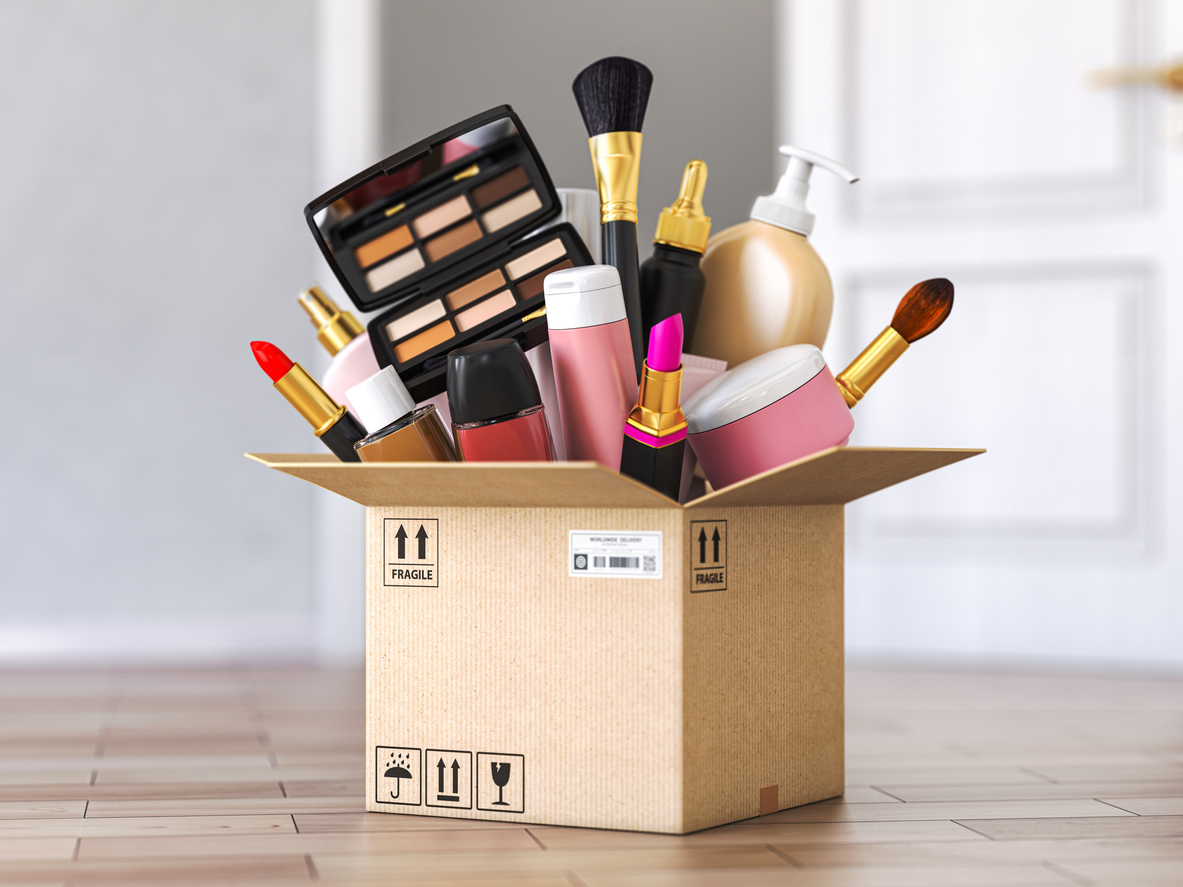Most bathroom drawers and shelves are lined with all kinds of toiletries: sunscreens, deodorants, shampoos and conditioners, lotions, makeup products, and more. But did you know that these products have a shelf life just like the items in your pantry?
Some toiletries have expiration dates labeled, but unfortunately, others don’t. Just because you can’t find a date on your items doesn’t mean they don’t go bad, so that’s where a little research comes in handy!
Below, we’ll walk you through the common shelf life considerations for all your favorite bathroom products. Next time you purge your items, you’ll know exactly what to keep and what to toss. It’s the best way to optimize your toiletries storage strategy long-term.
Why Does Shelf Life Matter?
Shelf life may feel more appropriate for food items than toiletries, but “best by” dates are important for all kinds of products. Shelf lives are designed to ensure any product you use or consume is safe and effective. Over time, toiletries can undergo chemical changes that leave them less potent (and possibly harmful).
Knowing your toiletries’ shelf lives can also help you minimize waste. When you understand when your products expire, you can make a point to use them while they’re still in their prime.
To avoid skin irritation or less-than-effective products, adhere to the shelf life recommendations below!
Related: Practical Bathroom Organization Ideas for Real Life (Not Just HGTV)

Shelf Life of Sunscreen
Sunscreen is one product whose shelf life really matters. Putting an old, expired sunscreen on your body may mean it’s ineffective—and the result could be a painful sunburn!
Since sunscreens are an important part of our health, they should have an expiration date listed somewhere on the bottle. In fact, Laura Williams says that since sunscreen includes SPF, the FDA requires manufacturers to put the expiration date on the bottle.
An open bottle of sunscreen can last six to 12 months but don’t stretch it much longer than that. “As tempting as it may be to go ahead and keep using the tube of sunscreen from last year, the SPF can degrade over time, making it less effective,” says Williams. Better to buy a new bottle before you go out in the sun!
Shelf Life of Shampoo and Conditioner
Shampoo and conditioner are shower staples, and if you only use one bottle at a time, you’re unlikely to hit the expiration date. If you like to stock up or rotate through a few products, the expiration dates matter more. Still, shampoo and conditioner have a fairly long shelf life compared to other toiletries.
So, how long do shampoo and conditioner last? You can expect to get about three years from unopened bottles and 18 months from opened bottles. After that, the most common outcome is a loss of efficacy. For example, older hair products might not de-frizz or remove dandruff the way you hope they will. The more you care about those effects, the more it matters that your products are current.
In the worst cases, you could also get a scalp infection from bacteria that builds up in the bottle over time. Jyl Craven says to increase your shampoo or conditioner’s shelf life, store them in a cool, dark place when unused. You can also buy products in spray containers or tubes so you don’t touch the product as often. “The less chance oxygen or water droplets have to get inside to hurt the product, the longer your stuff will last,” she says.
Related: Small Bathroom Ideas That Will Change Your Life
Shelf Life of Makeup

Finally, it’s especially important to keep track of expiration dates for makeup. Since most cosmetic products are applied to the face, there are countless opportunities to introduce bacteria.
According to Paula Begoun, that bacteria could result in skin irritation, rashes, blemishes, and various skin or eye infections. “Know when to let go,” Begoun stresses. “If you’re hanging on to your skincare or makeup past its expiration date, chances are microbes and bacteria have taken their toll and might be causing skin problems you’re trying to solve!”
Many makeup items will have expiration dates listed on the package. If they don’t, use a Sharpie marker to write the date when you open the product directly on the package. Since most people have a variety of makeup products, it helps to have a reference point for how long each product has been in use.
Eye products have one of the shortest shelf lives, going bad after four to six months. The proximity to the eye introduces even more opportunities for infection, so don’t try to stretch your eye products past their expiration dates. Toss them out and replace them as needed instead!
Foundations and concealers should be replaced every six months to a year. Powder-based products go bad every two to three years, and lipsticks, lip glosses, and lip pencils should be tossed every two to three years.
To be especially careful, Begoun advises that these dates are just guidelines. “If it smells funky, looks gunky or the texture has changed significantly – definitely toss it out!” she says. “Watch (or sniff) for any new odors, as smell is one of the first qualities to change when a formula has expired.”
Toiletry Shelf Life Takeaways
Ultimately, the easiest way to stay on top of toiletry expiration dates is to keep only the products you need. Try to avoid stocking up on months’ worth of products at once, and visit the drugstore when you need something new instead.
Already have what you need? Remember to label your products when you open them and follow the guidelines above to know when it’s time to toss them. You’ll have a fresh and organized batch of toiletries in no time!
Editor’s Note: Originally published on August 24th, 2015, and was revised on May 6th, 2019 & July 17th, 2023, with more information.






